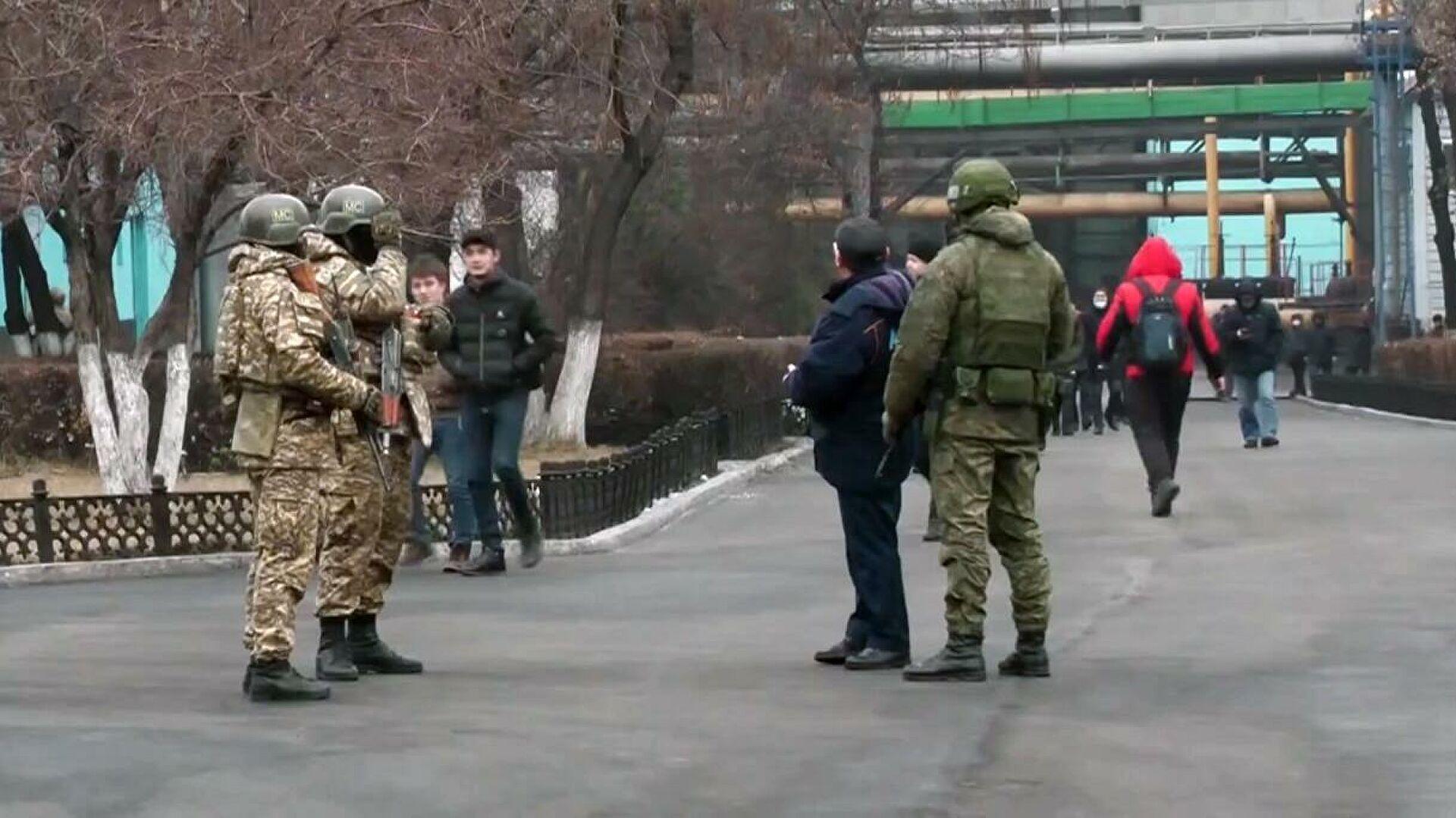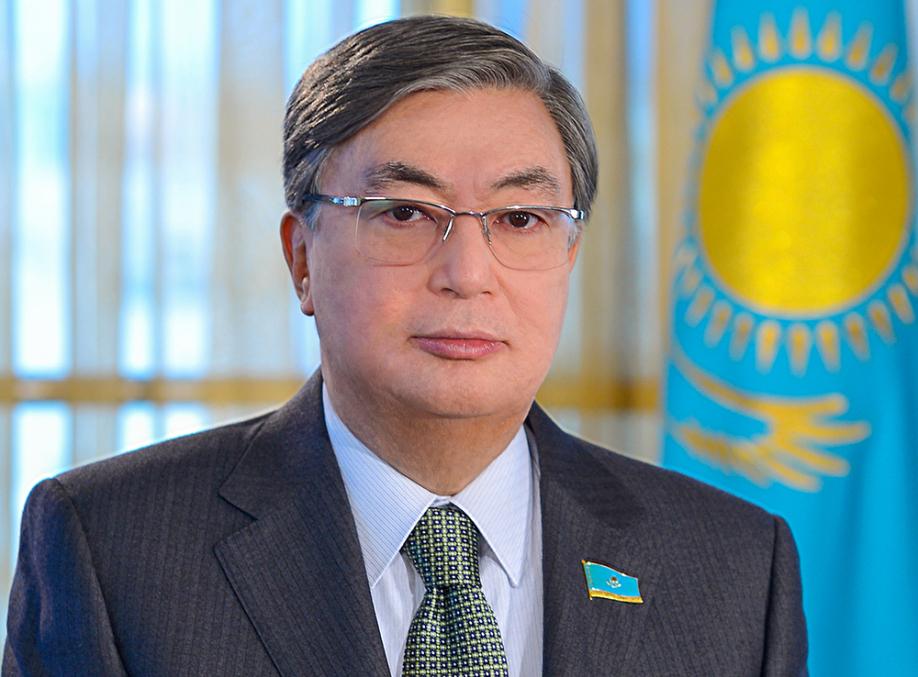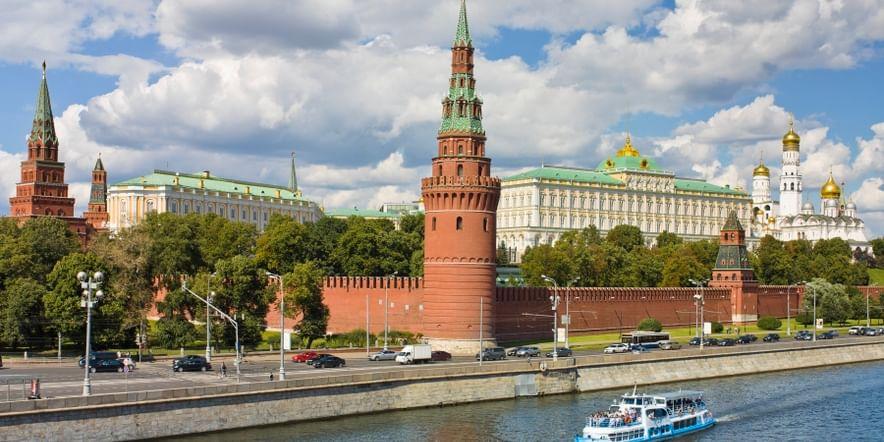Kazakhstan: From Zheltoksan to St Petersburg Tokayev's bold course
The year 2022 started in Kazakhstan, the largest post-Soviet state by territory after Russia, with extreme concern. Despite the fact that half a year has already passed, nevertheless, experts from many countries are still puzzling over to find out what happened and how has Kazakhstan changed after January.
Social protests with a political aftertaste
On January 2, protests began in the country against a sharp increase in the price of liquefied gas, which took place on 1 January 2022 in connection with the transition to a market-based pricing mechanism. The protests began in the gas-producing town of Zhanaozen in western Kazakhstan, but on January 3-4 they spread to other cities in the country. Protesters shifted from economic to political demands, which included the resignation of the government and the resignation of the country's first president, Nursultan Nazarbayev.
In the days that followed, on January 4-5, the protests escalated into riots, including the burning of government buildings and looting. A state of emergency was declared in Kazakhstan, first in some regions, and then throughout the country. For several days, Internet outages occurred, leading to disruptions in the operation of non-cash payments. The prices of liquefied gas were frozen, but this did not reduce the protests. Kazakh President Kassym-Jomart Tokayev dismissed Askar Mamin's government and replaced Nursultan Nazarbayev as head of Kazakhstan's Security Council. On January 6, at the request of the Kazakh president, the CSTO [Collective Security Treaty Organisation] operation in Kazakhstan was announced, which included the armed forces of Russia and five other countries and declared a peacekeeping mission to protect important facilities and help maintain law and order. The anti-terrorist operation mode was declared, and the cleansing of cities from protesters began.
On January 7, the Kazakh authorities reported the restoration of order in the country. As a result of these events, the prime minister, the state secretary and the speaker of the lower house of parliament were replaced. Half of the 16 ministers were replaced. Nazarbayev lost his position as leader of the ruling Nur Otan party. This position was taken by Kassym-Jomart Tokayev. He managed to save the country from chaos because the Kazakh elite was prudent in general and the president himself showed restraint and toughness where it was necessary. As a result, Tokayev became the sovereign leader of the country and could make any decisions without regard to his predecessor.

Historical digression
Protests on January 2-7, 2022, became the largest since the Zheltoksan events of December 16-18, 1986, when the youth of then-Soviet Kazakhstan took to the streets in protest against the appointment of ethnic Russian Gennadiy Kolbin by the Union Center as the first secretary of the Central Committee of the Communist Party of the Kazakh SSR instead of longstanding "master" of Kazakhstan Dinmuhamed Kunayev, who had authority among the local population. By the way, exactly after those events the star of Nursultan Nazarbayev, the chairman of the Kazakh Cabinet of Ministers in those years, began to light up on the political skyline of Kazakhstan. On December 16 of 1991, the fifth anniversary of Zheltoksan, Kazakhstan proclaimed state independence.
Moscow says one thing and thinks another
Officially, the Kremlin has supported the current government of Kazakhstan. The Russian Foreign Ministry had already issued a statement on January 6.
"Moscow will continue consultations with Nur-Sultan and the CSTO countries to develop, if necessary, further steps to facilitate the counterterrorist operation in Kazakhstan," the Russian Foreign Ministry website reported.
"The Russian Federation has reiterated its commitment to allied obligations within the CSTO, and supported the adoption of urgent measures in connection with the rapid degradation of the internal political situation and the growth of violence in Kazakhstan. We consider the recent events in the friendly country as an attempt fueled from outside to undermine the security and integrity of the state in a violent way, using trained and organized armed formations," the Russian Foreign Ministry said in a statement.
However, further events showed that the initial opinion of Russian experts that after January 2022 Russia will strengthen its influence on Kazakhstan many times over was wrong. Kassym-Jomart Tokayev, having overcome the inner political front and defeated his opponents inside the country, has started to conduct independent foreign policy. This was clearly demonstrated after the Russian invasion of Ukraine. An invasion that Kazakhstan did not support. Moscow's reaction was not long in coming. The standard accusations of "oppression of the Russian language" and the cancellation of the Victory Parade in Kazakhstan were chosen as a pretext. The role of "shockers" was given to fringe figures - "limonovtsy", the leader of pocket Communist Party Zyuganov, the husband of main Russian propagandist Tigran Keosayan and Konstantin Zatulin, who has been sponsored by Armenians for a long time (do not forget that he was elected to the Duma from Sochi, widely populated by Armenians). The only thing missing was Vladimir Volfovich Zhirinovskiy, the main buffoon and "torpedo" of the Russian campaign machine - who by that time was already buried in the Novodevichy cemetery. Thus, Zyuganov suddenly "was concerned" about the "infringement of Russians in the south of Kazakhstan and ousting of the Russian language from the everyday life". Keosayan's tone was even more insolent when he and his wife, RT editor-in-chief Margarita Simonyan, spoke sharply about what they saw as Nur-Sultan's insufficiently pro-Russian course.
"Kazakhs, brothers, what kind of ingratitude is this? Have you really decided that Russia will disappear somewhere? Or are you emigrating? My personal opinion: take a close look at Ukraine, think seriously. Our people in charge need to reconsider the level of relations. If you think that you can continue to be so 'cunning' and you will not get anything for it, you are mistaken. The world has changed, everything has changed. And the train is leaving, you can still jump into the last car. The game of friendship is over, it's a matter of survival. And the undecideds must be relegated to the ranks of our enemies. Enough is enough, we have played the game of gratuitous help. We have to save your power, to stop the mess, and you cancel the parade? Seriously?" Keosayan asked provocative questions.
Of course, the hints about the "Russian North" have not disappeared either. They say that since the majority of Russian citizens of Kazakhstan live in the North, in Pavlodar, Petropavlovsk, Kostanay, and Kokshetau cities, this is "Russian territory".
Despite such motley and the noisy company of attackers - from CPRF to "limonovtsy" - it was clear, that they are coordinated from single centre, which aims is to "break" Tokayev, to make him more compliant and obedient to the will of northern power, as well as to force him to break western sanctions against Russia. However, all these attempts have proved futile, as was shown by the St Petersburg International Economic Forum held last week.

Friendship is no reason to go against international law
Russian-Armenian propagandist Margarita Simonyan who essentially played the role of a manager at the forum asked Tokayev provocative questions that were fully answered and put a period to Moscow's attempts to make Nur-Sultan recognise the separatist entities in the post-Soviet space. And if you add that these answers were given live on TV in the presence of Russian President Vladimir Putin and guests from 130 countries, it becomes clear - Kazakhstan is not going to follow blindly the path of Moscow's foreign policy.
Tokayev said that Kazakhstan has an open society in which different opinions are expressed about the so-called "special operation" in Ukraine. According to him, two basic principles of the UN Charter - the integrity of the state and the right of a nation to self-determination - have come into mutual contradiction. "But in general, it has been calculated that if the right of a nation to self-determination were to be realised throughout the world, there would be more than 500 or 600 states on earth instead of the 193 states that are now part of the UN. This, of course, would be chaos. For this reason, we will not recognise Taiwan, Kosovo, or South Ossetia, or Abkhazia. In all likelihood, this principle will also be applied to the quasi-state territories, which, in our view, are Luhansk and Donetsk. This is a frank answer to your frank question," he said.
By the way, Taiwan came first in Tokayev's speech, according to former Russian Deputy Prime Minister Alfred Koch, not by accident.
"Kazakhstan is in a special relationship with China. No less close than with Russia. Suffice it to say that Chinese investments in Kazakhstan are three times greater than Russian investments. China, according to many experts, is behind the unusually rapid withdrawal of Russian troops from Kazakhstan after the well-known events in January of this year.
And now Tokayev has come to SPIEF. What made him come to this meeting?
My version: he had a personal message from Xi Jinping to Putin. And so that there is no doubt, Tokayev, when listing the separatist regimes, began with Taiwan. Although he understood perfectly well that the nature of the "Taiwan problem" is quite different from that of "LPR", "DPR", South Ossetia, or Abkhazia. And Taiwan can hardly be called in its pure form a manifestation of separatism.
But it was important for him to mention Taiwan first in this context and he did it," Koch wrote.
The final chord was the refusal of the President of Kazakhstan Kassym-Jomart Tokayev to accept the Order of Alexander Nevsky. This information was confirmed by a spokesman for the president of Kazakhstan to Tengrinews.kz. According to the media, Tokayev motivated his refusal by the fact that "he made a decision not to accept any domestic or foreign awards until the end of his presidential term".

Kremlin revenge for excessive independence?
For the last several days after the Forum in St Petersburg, Russian, Kazakhstani and foreign experts have been speculating how Moscow will answer to Tokayev's independence. President Tokayev's firm stance can cost Kazakhstani economy pretty much, and Russia has enough levers to put pressure on its neighbour - from the above-mentioned territorial questions to economic war. The hysterical tone of deputy of State Duma Konstantin Zatulin, who stated that now territorial questions can arise towards Kazakhstan as to Ukraine, showed offence of Moscow. He was followed by the head of Chechnya, Ramzan Kadyrov, who demanded that CSTO countries support Russia in the war - especially Kazakhstan and Armenia, whom the Kremlin has "saved", according to the Chechen leader.
According to DW, such attacks on Kazakhstan indicate that they were ruled by the top leadership of the Russian Federation, which was very angry at the way the Kazakh president behaved.
However, two things are obvious in this story. First of all, Tokayev's tough and frank position, including on the St Petersburg forum, significantly added to his rating both inside and outside of Kazakhstan. Many Kazakh experts and journalists reacted positively to Tokayev's speech, noting that they "can only applaud the president of the country".
Second, the Kazakhstani leadership, despite external (and still internal) pressure, manages to keep its foreign policy cool and ensure stability and sovereignty. But Kazakhstan is clearly not alone in this - as a full member of the Organisation of Turkic States, the official Nur-Sultan, the Kazakh society can always count on the help of the brotherly Turkic countries, especially Türkiye and Azerbaijan. In this context, it is necessary to recall that in the declaration adopted at the 8th summit of the leaders of the Cooperation Council of Turkic-speaking States, the Turkic states affirmed their determination to further develop political solidarity, economic cooperation, trade, cultural contacts, humanitarian and public relations. The intuition tells me that there will be much more deeds than words, unlike other unions in the post-Soviet space. Turks are stronger together!








